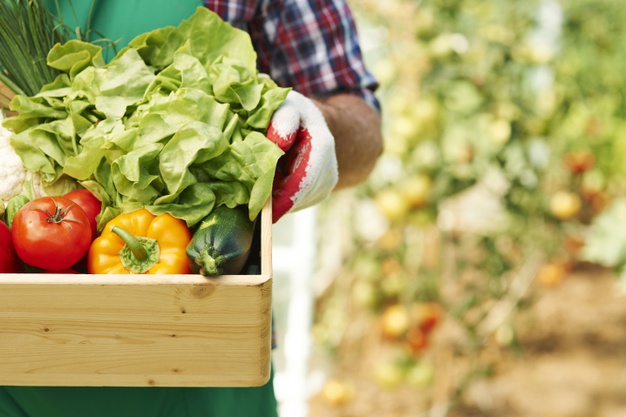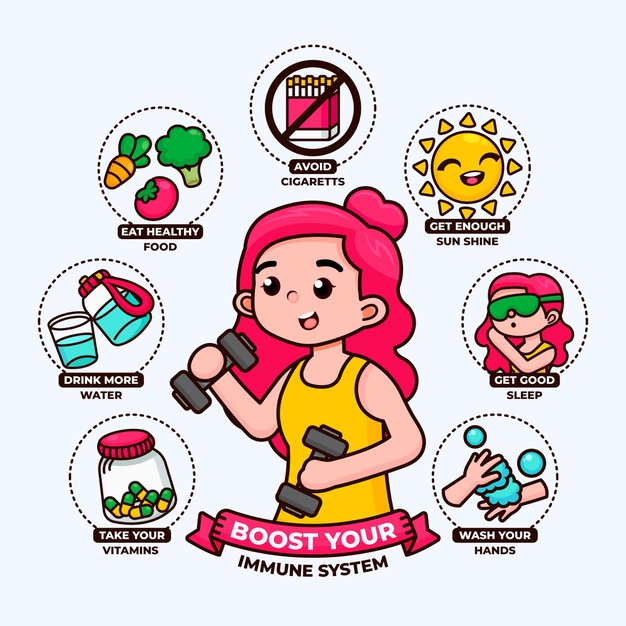Organic food brings the concept of healthy food directly from the farm to your plate minus the addition of harmful chemicals, pesticides, food additives and genetic alterations like growth enhancers, and genetically modified organisms (GMOs).
Organic farming practices focus on growing vegetables and fruits by following natural crop and cattle behaviours which include the ability to graze on pastures for natural feed and foliage. Organic cattle are not given antibiotics, growth hormones, or any animal by-products by their farmers which may raise their toxicity levels.
Organic food is the favourite among health-conscious, but do you know how healthy your organic food is? Organic Vegetables, Fruits, Organic meat, and Organic eggs do not contain-
Pesticides
Non-Organic farming may use over 300 artificial pesticides which may get stuck with the food and subsequently find its way to the supermarkets. A study shows that over 45% of the non-organic foods contain traces of more than one pesticide that reaches on the user’s plate. On the contrary, organic farmers are allowed to use only 20 pesticides procured from natural ingredients like citrus or clove oil used only under restricted circumstances.
Growth enhancers
Organic food restricts the uses of synthetic plant growth regulators which influences the growth speed and size of the crops. Organic vegetables and organic fruits are thus devoid of the growth hormones used to accelerate farm produce and comply with the highest food safety standards.
Fertilisers
Organic produce is cultivated using crop residues and animal waste. Other fertilizers include amino acids, compost that add nutrients to the soil.
GMO
Organic food prohibits the use of genetically modified organisms (GMO), that are genetically mutated to create crops that are virus resistant. GMOs can cause allergy forming biochemical compounds, dangerous to our health.
Farmers Day
As the demand for organic food grows over the years, farmers have shown an increased interest for the perceived health and wellness benefits of organic products. Our country is a prominent organic produce market, farmers who grow organic and non-organic food are the backbone of our wellbeing. Honouring their contribution towards the growth of the country, 23rd. December marks as the National Farmers Day or the Kisan Divas.
Benefits of Consuming Organic Food
High on nutrients
An organic food product comes packed with nutrients. Organic vegetables, organic fruits and organic eggs have higher antioxidants, vitamins, and minerals than their non-organic counterparts.
Fresh produce
Organic food doesn’t contain any preservatives, or pesticides, that makes them have a longer shelf-life. Organic vegetables and fruits are generally produced in smaller farms and sold in nearby markets which keeps them luscious and farm fresh.
Better for health
Organic vegetables, fruits, organic eggs and meat, organic rice and grains are grown with natural techniques, following crop rotation, without tillage, fertilizers, pesticides, or herbicides. Organic farm produce is thus safer and healthier, which means greater nourishment for a better living.
Antioxidant Content
Organic produce has limited exposure to toxic metals. Thus, the positive effects of antioxidants are the highest. It also helps in the prevention of premature ageing, cognitive malfunction, heart disease, cancer, and vision problems among consumers.
Stronger immunity
Organic milk, Organic meat, Organic fruits, and vegetables are high in antibiotics that are essential to building our immunity. No wonder they are preferred to feed for expectant mothers, elderly, new-born children and those suffering from any pre-existing chronic or non-chronic diseases.
Poison-free food on the plate
Organic farming does not use any dangerous chemicals to keep away the insects and pests. Consuming organic food reduces biomagnification to a large extent by restricting artificial growth hormones, chemical pesticides, fertilizers in the food. Multiple studies point out that organic crops lower the presence of toxic metal cadmium by as much as 48%.
Pesticide-free
Pesticides are known to be detrimental to health. The chemical composition of pesticides is known to cause a variety of diseases that include digestive dysfunctions, headaches, weakened immune system, birth defects, and even premature death. The chemicals in pesticides, Organophosphorus for instance, may cause various developmental disorders such as ADHD (Attention deficit hyperactivity disorder) and autism.
Organic foods are free from harmful pesticides and are preferred for sustaining a higher quality of nutrition, especially among children who have been exposed to pesticide toxins during their developmental ages.
Low risk of food-induced illness
Contaminated fruits and vegetables aimed at agribusiness gains do no good for our health. We hear several cases of food-induced illness, food poisoning, diarrhoea being common examples. The WHO estimates that over 600 million or almost one in ten people harm their health by eating contaminated food. With annual deaths of over 400 000, children under five years are the most affected carrying as much as 40% of the foodborne disease burden.
Organic vegetables, fruits, organic eggs and meat are less prone to fungal attack, are less likely to be contaminated with mycotoxins that are capable of causing acute poisoning, immune deficiency and cancer.
Measuring Pesticide Levels in Food
Environmental Protection Agency (EPA- USA) observes that pesticides have the potential to harm human health, and even stun crop growth. The Environmental Working Group annually releases the list of top fruits and vegetables that contain the maximum and minimum pesticides. Here is the list for 2020-
| Highest pesticide content Fruits & Vegetables | Lowest pesticide contentFruits & Vegetables |
| Strawberries | Avocados |
| Spinach | Sweet Corn |
| Potatoes | Pineapple |
| Apples | Onions |
| Nectarine | Papaya |
| Grapes | Frozen Sweet Peas |
| Peaches | Eggplant |
| Celery | Cauliflower |
| Pears | Broccoli |
| Tomatoes | Cabbage |
| Cherries | Kiwi |
| Kale | Sweet melon |
| Hot Peppers | Mango |
Following the listing, nutritionists explain that it is good to buy organic substitutes for vegetables and fruits that do not contain the high doses of pesticides and other harmful chemicals.
Symptoms of Pesticide Poisoning
Pesticides are poisons and toxic, and their exposure can cause several dangerous effects-
- Even low dose use of pesticides can increase the risk of certain cancers, like brain tumours, breast cancer, prostate cancer, leukaemia, and lymphoma.
- Young children and growing foetuses are the most vulnerable to pesticide exposure. Their immune system is still underdeveloped, exposure to harmful pesticides at an early stage may cause developmental delays, immune system harm, motor dysfunction, behavioural disorders, autism.
- Expectant mothers must prefer to consume organic vegetables, organic fruits, organic meats, organic eggs, and organic rice. They are more vulnerable to pesticide dangers due to the added stress these pesticides put on their organs. Besides, a child may inherit the pesticide from the mother either in the womb or through breast milk.
Short-term symptoms of pesticides poisoning are visible within 48 hours of exposure, they are-
- Respiratory tract irritation
- Nausea, vomiting, diarrhoea
- Headache, loss of consciousness
- Sore throat and/or cough
- Allergic sensitisation
- Eye and skin irritation
- Extreme weakness, seizures and/or death
Diseases associated with long term pesticide poisoning are-
- Development of Parkinson’s disease
- Asthma
- Depression and anxiety
- Attention deficit and hyperactivity disorder (ADHD)
- Cancer (leukaemia and non-Hodgkin’s lymphoma)
- Chronic obstructive pulmonary disease (COPD)
- Cardiovascular disease (atherosclerosis and coronary artery disease)
- Chronic nephropathies
- Rheumatoid arthritis (Autoimmune disease)
- Chronic fatigue syndrome
Consulting Specialists on Gigadocs
Though the use of pesticides has shown a worrying increase across the world, the concerns over their bad effects are more alarming. Besides bringing dangers to our wellbeing, they can be bad for our immunity.
Download the Gigadocs app to consult telemedicine doctors at your convenient time over a phone or a video call from the privacy of your home.
Check the immunization dates for new-born and young children on the Gigadocs vaccination schedule chart. Book a digital appointment for a paediatrician, seasonal infections, water-borne diseases, orthopaedic troubles, and many more on the Gigadocs app.
Download the Gigadocs App from-
- IOS App – apple.co/2W2iG4V
- Android App – bit.ly/33AQoRC
To know more and schedule a Virtual Consultation demo, e-mail, at info@gigadocs.com




